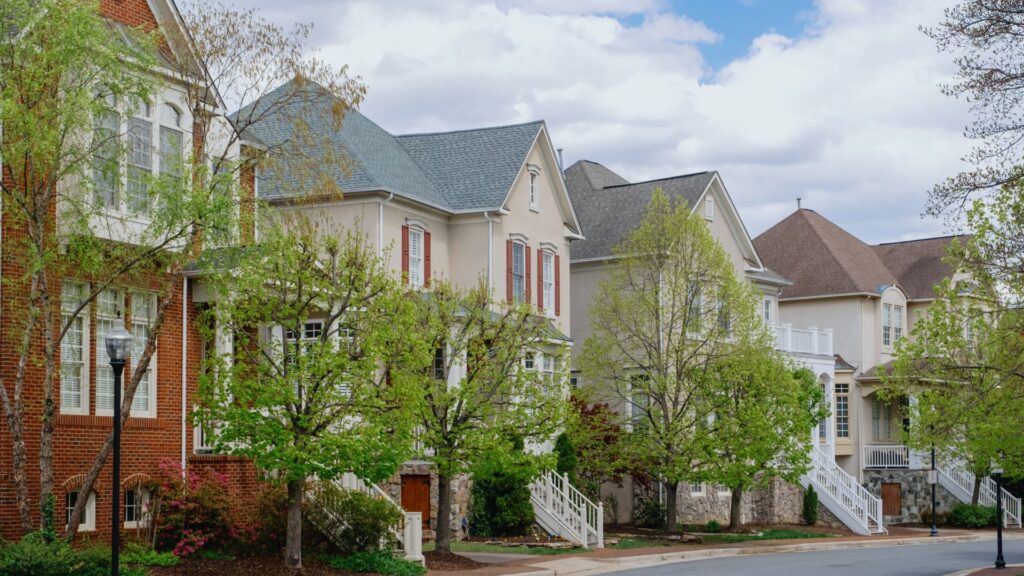
A version of this article first appeared in the CNBC Property Play newsletter with Diana Olick. Property Play covers new and evolving opportunities for the real estate investor, from individuals to venture capitalists, private equity funds, family offices, institutional investors and large public companies. Sign up to receive future editions, straight to your inbox.
Fractional ownership isn’t exactly a new concept in real estate, but one company is taking it to another level, with the help of fresh funding from big-name investors. It’s creating a so-called stock market for real estate.
Arrived, which launched in 2021, is a platform for real estate investors to buy and sell shares of rental homes for as little as $100. Rather than investing in a public real estate investment trust, they can build their own portfolio of properties, which are managed by Arrived. Not only do the properties generate income from rents, but they can appreciate over time. Because the properties can each be owned by hundreds of investors, they are taxed as REITs.
“We spent about a year working with the [Securities and Exchange Commission] to create this framework within the regulation so that both accredited and non-accredited investors can participate,” said Ryan Frazier, co-founder and CEO of Arrived. “So we have a recurring offering structure through the SEC to register each property, and then each property to qualify as a REIT.”
Frazier describes it as “unbundling” the REIT into individual properties, so investors can pick and choose what they like. Some properties have more than a thousand investors. So far Arrived has roughly 500 properties across 65 cities. It’s been doubling its property count each year.
Investment platform Roofstock, which mostly sells entire investment properties on its site, also has fractional ownership opportunities but with a much higher minimum investment.
Arrived is now announcing a new $27 million fundraise to help launch a secondary market platform, where investors can trade their shares of individual homes across the U.S. in minutes. This allows them to quickly exit or expand positions as well as capture appreciation and rebalance portfolios.
“Now investors can buy and sell shares from each other on Arrived,” said Frazier, noting in the first three weeks that the option has been live, investors have submitted 57,000 buy and sell orders on the marketplace.
“I think it’s exciting, because we’re really bringing this liquidity to the real estate market that I think facilitates real estate investing just moving online,” he added.
The new funding was led by Neo, a venture capital fund and mentorship community.
“The Arrived team is cracked, and I love the audacity of their vision: a stock market for real estate,” said Ali Partovi, CEO of Neo, in a release. “I’m betting on them to democratize and digitize access to America’s $50 trillion in residential real estate.”
Participation also included Forerunner Ventures, Bezos Expeditions and Core. Other existing investors include Salesforce CEO Marc Benioff, Match Group CEO Spencer Rascoff and Uber CEO Dara Khosrowshahi, bringing total funding to $61.7 million to date.
Since its inception, more than 850,000 investors have collectively invested more than $330 million in Arrived homes, according to the company.
This new platform comes at a time when traditional homebuying has stalled and investors are finding it increasingly expensive to purchase single-family rentals on their own. Home prices are still historically high, and interest rates are significantly higher than they were just three years ago during the last housing boom.
Investors are making up the highest share of homebuyers on record this year, according to Cotality, but only because the pool of owner-occupant buyers has shrunk so much.
In order to protect itself against weakness in the overall housing market, Frazier said Arrived has become very choosy about its markets and has stopped using long-term leverage in the portfolio. The majority of properties on the Arrived platform, he said, are owned by investors with 100% equity, adding that for those that do have mortgages, the average interest rate is below 4%.

